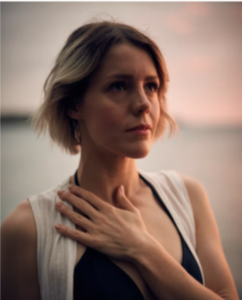At the last minute, my afternoon meeting was canceled. And so, unexpectedly, I was presented with a substantial chunk of unscheduled time, five hours of open, unfilled space with which I could do whatever I wanted.
I immediately flipped open my laptop and started researching. Researching what? Everything, anything, something that would interest me, something to do, something to fill the space.
After distractedly surfing through movie schedules and museum exhibits, I had a thought: “sound baths.” Within seconds, Google had delivered a page of options on the new auditory class that meditation and yoga studios now offer. I inattentively skimmed through several descriptions and testimonials on the bath experience, as well as schedules for five or six studios that offered it. Rapidly scanning the pages, I wasn’t able to find a class for the day at hand. In the process, however, I bumped into a link for the 10 hardest workouts in New York City. Wouldn’t that be a great idea, I thought, and so I flitted through a whole host of kettle ball, circuit training, and boot camp options, none of which sounded remotely like something I wanted to actually do.
I am not sure what happened next, but I found myself inside a list of vacation destinations with direct flights from New York. Seems I had followed a link for “easy family holidays that won’t break the bank.” Inside one of the hotel write-ups was a description of a garden that sat on the sea, which reminded me of a neighborhood park that I had read about, but not yet visited. I found the park online and superficially perused its history and hours for visiting. But then I remembered that I needed a new pair of sneakers. And so I sped over to the Nike site and discovered that there were so many new styles, all of which were so fabulous that I couldn’t decide. The only pair I investigated further wasn’t available in my size. At this point, I went back to movies, because I had a thought about a documentary on a runner. But it turned out the film was only playing way downtown and that didn’t appeal. What then followed was a speed train through hot yoga studios, great city walks, dog parks for shy dogs, independent bookstores, places to buy cooking supplies, and kirtan performances — which is when I woke up.
I shut my computer and took a deep breath, pulling the air down into my body. “Stop,” I said to myself. “Just stop.” I looked at my watch: I had been down the rabbit hole for two hours. Two of my five free hours were gone. I felt agitated, anxious, and paralyzed, entirely overwhelmed with possibilities, but unable to move on any of them. I was “twired” — tired and wired at the same time. I put my hand on my heart and felt the simplicity of stillness.
“Come home,” I said to myself. “Be here.” I then unhooked from all the ideas of what I should or could do with my time and just felt into my body, felt my own physical presence. I took a few conscious breaths and invited myself to relax and land where I was, now.
What happened next was that I felt an immediate sense of relief and peace, to be allowed to be where I was and to not have to do anything at all, nothing other than pay attention to what I was actually experiencing.
I became aware of a longing to call a particular friend. I also felt the desire to take a walk, to be with myself and to be outside. That’s what came to me, organically, when I dropped into my body and now.
One of the problems that technology is creating for us is a feeling that we should be constantly taking advantage of every opportunity available to us —and that if we’re not, we are somehow missing out on life. We believe that there is something somewhere inside Google that will make this moment complete, someplace else that is better than where we are, something more that we ought to be doing. We no longer ask ourselves, or let ourselves discover what we want to do. Rather, we ask Google what’s possible, or what we can do. The thing is, what we can do is often very different from what we want to do. We find frequently that what we want to do is much simpler than what we can do. And also that when we listen in to what we actually want, from the body, the answer is clear and without ambivalence or confusion; it has a sense of “Oh yes, that’s right” — unlike the “can and should do’s,” which leave us feeling murky without the clear “Yes” that comes with truth.
Technology creates an infinite number of choices. We can do anything at any time. And yet while we may delight in the idea of choice, research shows that when we have too many choices, we actually end up unhappy, deadened, overwhelmed, fatigued, and immobilized. With unlimited choices, we frequently end up making no choice at all. And if we are able to make a decision amid the mountain of choices, we generally feel less satisfied with our choice and more concerned that another option would have served us better. Unlimited choices also cause us to shut down our creative thinking. When presented with too many options, we often revert to the simplest one, or consider only one manageable variable in making our selection. The more technology beckons with possibilities, the more we humans pull the covers over our heads and find ourselves frozen in a perpetual state of both too much and not enough.
The issue, too, is that we are looking outside of ourselves for our own truth. When we have a free afternoon, we look to the internet, hoping to find something that will generate interest in us. When we cook dinner, we go surfing on Instagram to find a picture of something that will tell us what we want to eat. When something happens in our life, we post the experience to find out what it should and will mean to us.
We have forgotten that we can know things through our own experience. We have forgotten that the process of knowing can happen from the inside out and not the outside in.

The next time you find yourself with a chunk of unscheduled time, even just a little (e.g., standing in line, riding public transportation), try living it in a new way — or, at least, differently than I did — and create a new habit. Instead of immediately searching outside yourself, on your phone or computer, to find something that might interest you, something to fill the time, drop into yourself, into now. Feel your body, the sensations arising, how you are in that exact moment. Pay attention inside; notice if there is a natural longing or interest already present. If nothing comes, that’s fine; just stay still and keep attending. Practice not doing, not filling the time, not habitually forcing something into every open space as soon as it appears. In so “doing,” you are, in fact, turning yourself, now, into a destination and a place to be.


